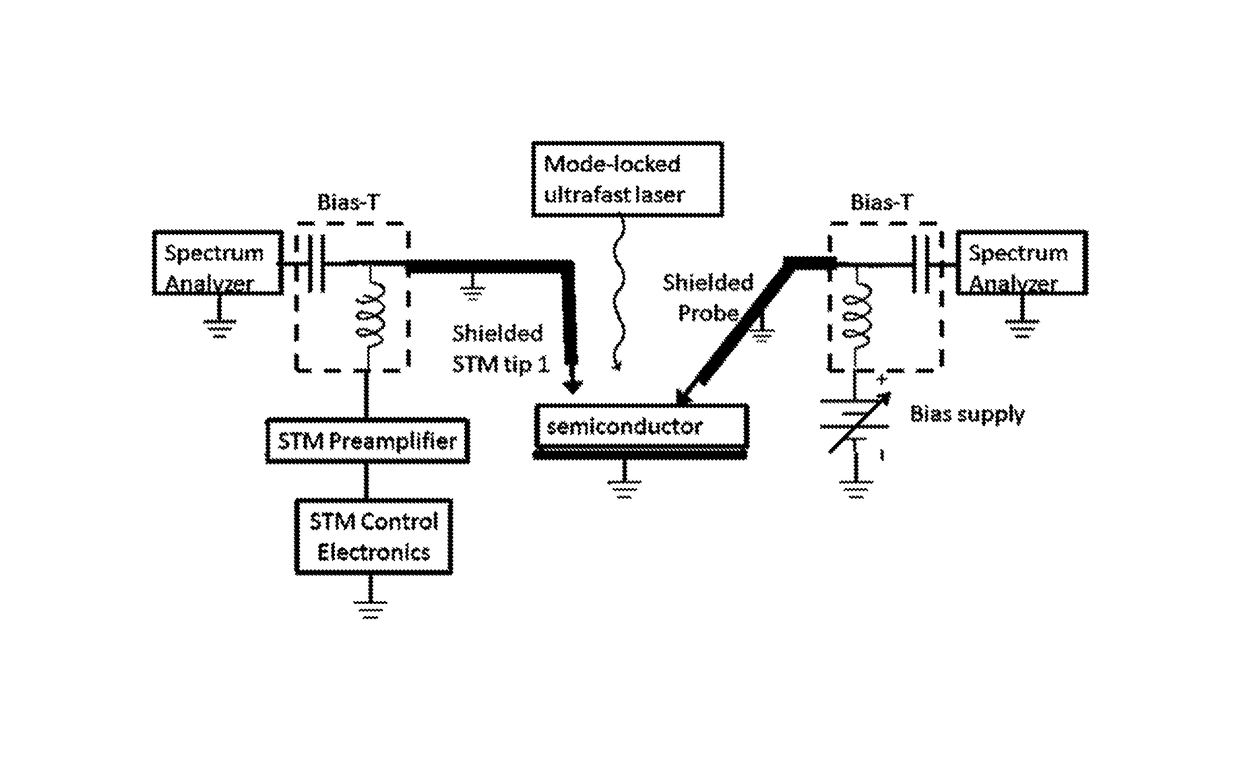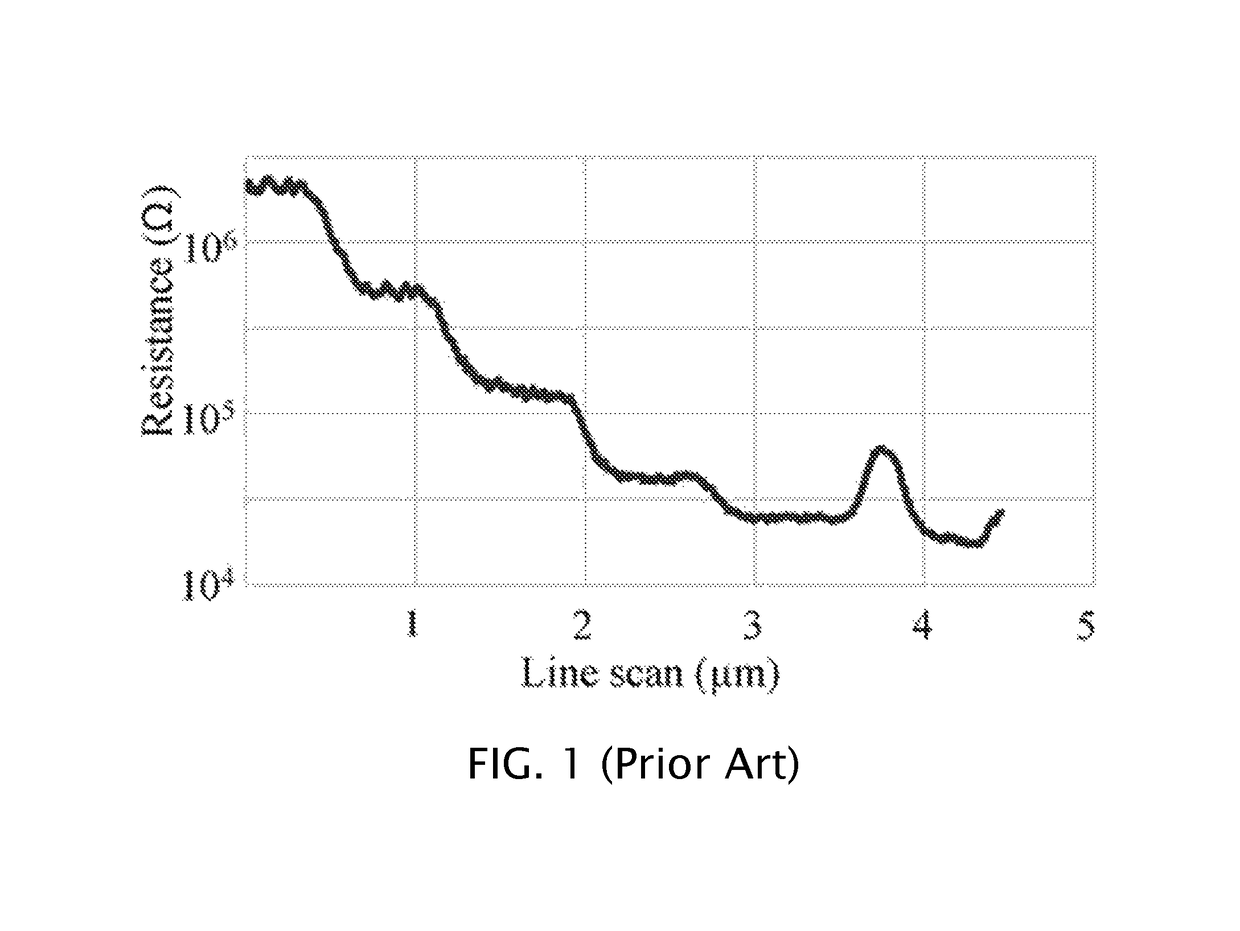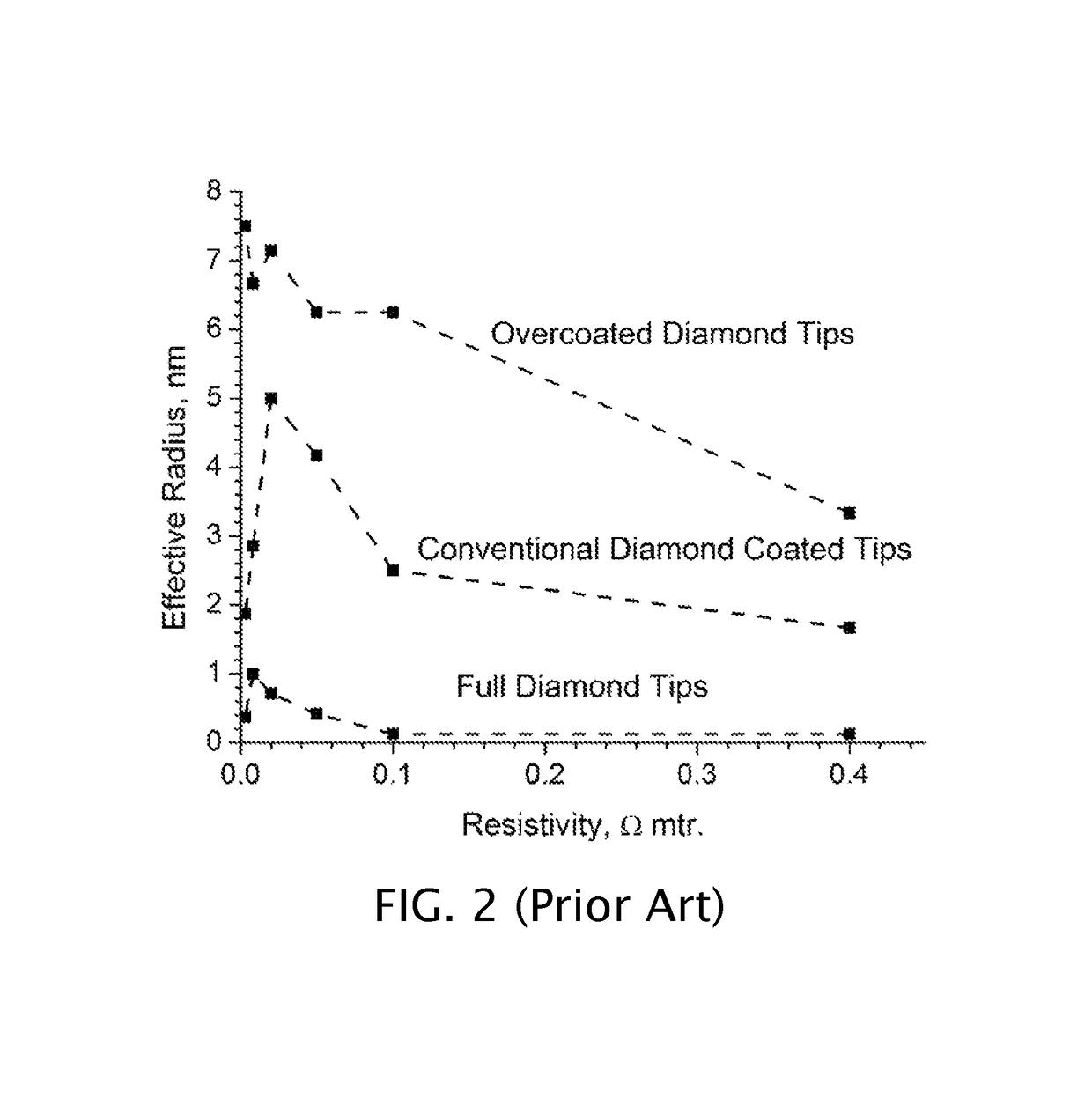Apparatus and algorithm for carrier profiling in scanning frequency comb microscopy
a scanning frequency comb microscopy and algorithm technology, applied in scanning probe microscopy, instruments, measurement devices, etc., can solve the problems of not only being able to apply deconvolution easily, but also being able to achieve finer effective radius, finer resolution, and avoiding calibration of instruments
- Summary
- Abstract
- Description
- Claims
- Application Information
AI Technical Summary
Benefits of technology
Problems solved by technology
Method used
Image
Examples
Embodiment Construction
[0039]With reference now to the drawings, the preferred embodiment of the method for carrier profiling and an apparatus for conducting the same is herein described. It should be noted that the articles “a”, “an”, and “the”, as used in this specification, include plural referents unless the content clearly dictates otherwise.
[0040]A microwave frequency comb (MFC) having hundreds of harmonics that set the present state-of-the-art for a narrow linewidth microwave source may be generated by focusing a mode-locked ultrafast laser on the tunneling junction of a scanning tunneling microscope (STM) [M. J. Hagmann, A. J. Taylor and D. A. Yarotski, “Observation of 200th harmonic with fractional linewidth of 10−10 in a microwave frequency comb generated in a tunneling junction,” Appl. Phys. Lett. 101, 241102 (2012)]. Quasi-periodic excitation of the tunneling junction by the laser superimposes a regular sequence of short (≈15 fs) current pulses on the DC tunneling current, and in the frequency...
PUM
 Login to View More
Login to View More Abstract
Description
Claims
Application Information
 Login to View More
Login to View More - R&D
- Intellectual Property
- Life Sciences
- Materials
- Tech Scout
- Unparalleled Data Quality
- Higher Quality Content
- 60% Fewer Hallucinations
Browse by: Latest US Patents, China's latest patents, Technical Efficacy Thesaurus, Application Domain, Technology Topic, Popular Technical Reports.
© 2025 PatSnap. All rights reserved.Legal|Privacy policy|Modern Slavery Act Transparency Statement|Sitemap|About US| Contact US: help@patsnap.com



